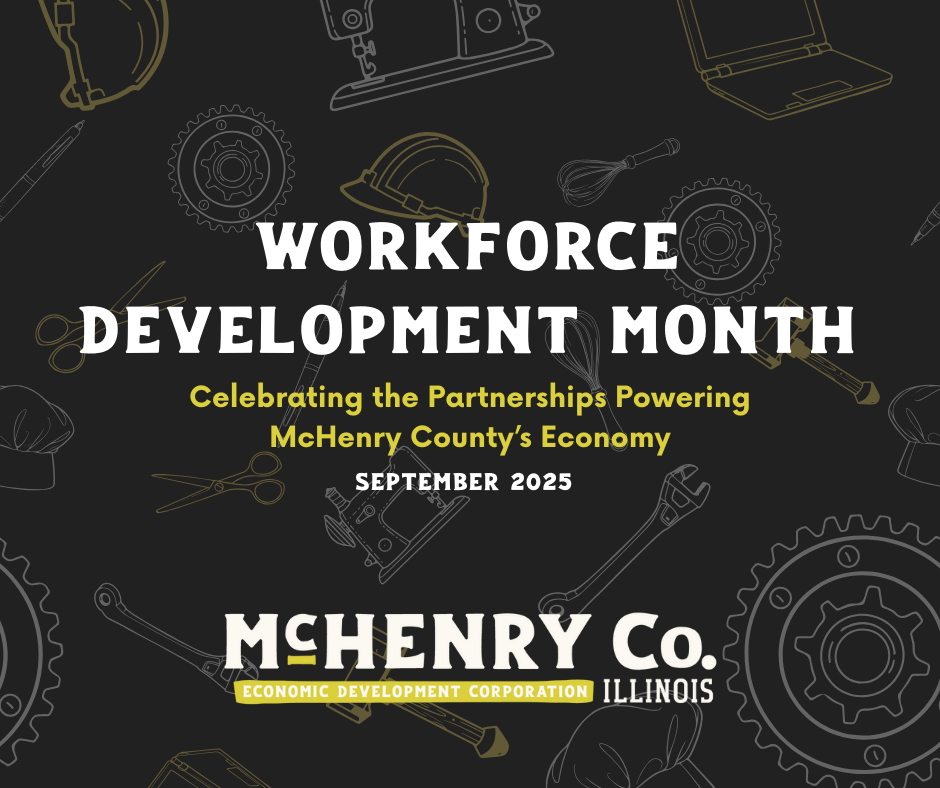
Workforce Development Month: Celebrating the Partnerships Powering McHenry County’s Economy
When companies consider growth in McHenry County, one question rises above all others:
Can we find the people we need to grow here?
In today’s economy, talent is the differentiator. Workforce development is not just an economic driver, it’s the foundation of business attraction, retention, and expansion.
September is Workforce Development Month, an effort by the National Association of Workforce Development Professionals to raise awareness about the importance of the workforce industry to growing national and local economies. The MCEDC applauds the commitment to collaboration of our local Workforce Development professionals this month and is grateful to contribute to the cause.
McHenry County is home to more than 178,000 people in the labor force, with over 171,000 currently employed. Our labor force participation rate is 70.3%, one of the highest in the region. Our unemployment rate, at 4.3%, remains lower than Chicagoland’s average.
Workforce readiness is about more than headcount; it is about skills. McHenry County’s population is increasingly educated with graduate-level attainment growing more than 10% since 2019. The local education pipeline is aligned with industry needs. Certificate programs are on the rise, giving employers access to workers who are job-ready in less time.
While it takes industry, education, government, and individual contributors to cultivate a strong and resilient workforce, it’s important to recognize some core contributors driving efforts in McHenry County:
- McHenry County College: Equipping students, workers, and employers alike with advanced manufacturing labs, industry-relevant certificates, and customized training solutions that help them keep pace with changing technologies.
- McHenry County Workforce Network: Serving as the bridge between employers and job seekers, reducing hiring barriers and tailoring services around the needs of local businesses.
- Manufacturing Pathways Consortium: Bringing industry, educators, and community partners together with students to spark interest in manufacturing careers. In 2025 alone, more than 80 student interns in the manufacturing sector and 5 students in construction management completed over 20,000 hours of work, developing valuable skills and exploring career pathways.
Another worthy recognition as we celebrate workforce development is McHenry County’s Specialty Courts Step Forward program that focuses on work readiness for justice-impacted job seekers. This program has had an incredible impact helping individuals re-enter the workforce with stability and purpose while opening a valuable, often overlooked talent pool for local employers.
Employers in McHenry County benefit from a deep and growing labor pool, educational institutions tuned to industry needs, workforce initiatives that reduce hiring friction, and a proven record of resilience and adaptability. This is why manufacturing, health care, and professional services remain dominant contributors to our local economy.
If your business is hiring, expanding, or preparing for new technologies, I encourage you to partner with the organizations mentioned to grow your strategy. And if you are in a position to support, I invite you to share these resources and join us in celebrating Workforce Development Month this September.

 Mark Piekos, Executive Director, MCEDC
Mark Piekos, Executive Director, MCEDC